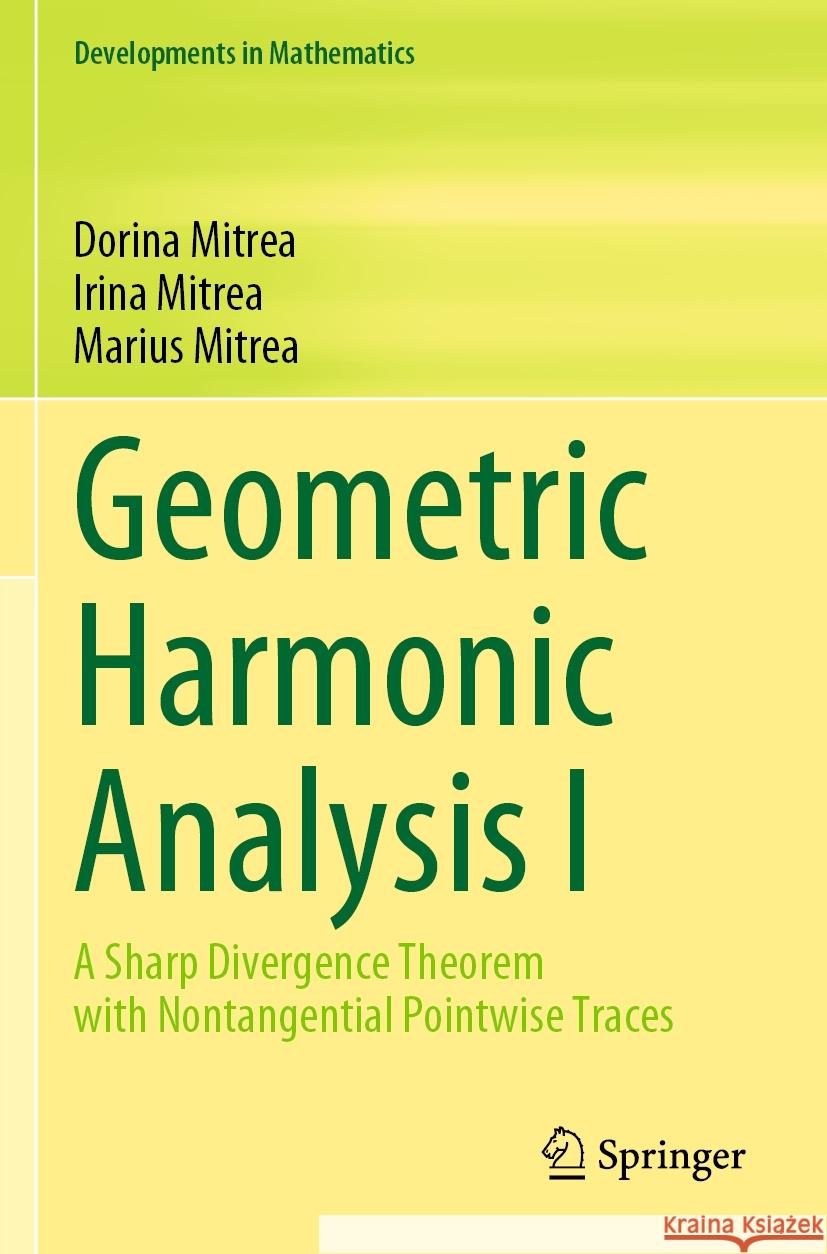Geometric Harmonic Analysis I » książka
topmenu
Geometric Harmonic Analysis I
ISBN-13: 9783031059520 / Angielski / Miękka / 2023
Geometric Harmonic Analysis I
ISBN-13: 9783031059520 / Angielski / Miękka / 2023
cena 684,33
(netto: 651,74 VAT: 5%)
Najniższa cena z 30 dni: 655,41
(netto: 651,74 VAT: 5%)
Najniższa cena z 30 dni: 655,41
Termin realizacji zamówienia:
ok. 16-18 dni roboczych.
ok. 16-18 dni roboczych.
Darmowa dostawa!
This monograph presents a comprehensive, self-contained, and novel approach to the Divergence Theorem through five progressive volumes. Its ultimate aim is to develop tools in Real and Harmonic Analysis, of geometric measure theoretic flavor, capable of treating a broad spectrum of boundary value problems formulated in rather general geometric and analytic settings. The text is intended for researchers, graduate students, and industry professionals interested in applications of harmonic analysis and geometric measure theory to complex analysis, scattering, and partial differential equations.
Volume I establishes a sharp version of the Divergence Theorem (aka Fundamental Theorem of Calculus) which allows for an inclusive class of vector fields whose boundary trace is only assumed to exist in a nontangential pointwise sense.











